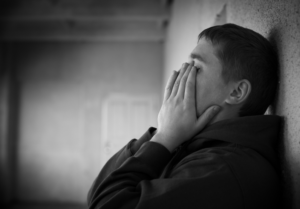The importance of a relapse prevention plan cannot be overstated. Even when someone has completed their rehabilitation program and gone back to their usual daily routine, addiction is still like any other long-term illness. It needs ongoing attention and supervision for a long time. Not taking this part of rehabilitation seriously can cause a relapse which could mean a comeback to drug or alcohol addiction. At the same time, it is essential to remember that relapse happens frequently; the numbers show that 40 to 60% of people who have been through treatment for substance use disorders will relapse at one point or another.
Even after months or years of sobriety, a person may suffer a relapse. This can be especially hazardous for someone who had a long period of abstinence, as they have lost their tolerance to the substance they had been using previously. If they consume the same amount they used to, they may overdose, possibly leading to death. To lessen the probability of relapsing, it is important to make a practicable relapse prevention plan a critical part of the recovery process. Continue reading to learn how.
What is Relapse?
Recent research on preventing the recurrence of substance abuse indicates that a relapse is not a single occurrence of reverting to drug usage; rather, it can be divided into three phases:
Emotional Relapse
At the start of a relapse, people may not be aware of the fact that they are relapsing. This stage is marked by a range of negative emotions like depression, anger, and fear, as well as disrupted sleeping and eating patterns which are also signs of post-acute-withdrawal syndrome. If these indicators can be identified and addressed in time, it is possible to stop a relapse in its tracks.
Mental Relapse
This period is accurately characterized as an inner sort of tug-of-war battle between the impulse to revert to substance abuse and the wish to remain abstinent. An individual at this stage of the relapse procedure is especially vulnerable as, once they make the decision to use again, very few measures can be taken to prevent it.
Physical Relapse
When people hear the term “relapse,” they usually associate it with the physical relapse stage. If an individual is not able to prevent a mental relapse, this last stage will come into play, resulting in a breaking of their sobriety. One use is sufficient for the intense cravings to return, making it more likely that they will relapse into regular substance abuse. To ensure the best outcome after a physical relapse has occurred, it is essential to get the person back into treatment quickly.
What is Relapse Prevention?
All treatments that are used to help people with Substance Use Disorder are aimed at stopping them from relapsing. Relapse Prevention (RP) is a particular kind of intervention that operates on a cognitive-behavioral basis. This approach requires patients and their clinicians to identify the situations that might cause the person to lapse back into substance abuse, either through their own inner experiences (such as positive thoughts about using substances or negative thoughts about abstinence that come to mind without any deliberate effort – known as “automatic thoughts”) or through external factors (for instance, people that the person associates with substance abuse).
Subsequently, the patient and the health care provider team up to create plans, which include intellectual and physical components, to battle those particularly dangerous circumstances. Through more productive coping, the patient acquires greater assurance to confront difficult scenarios without intoxicating substances.
What is a Relapse Prevention Plan?
A relapse prevention plan is an essential instrument for any person in recovery. Basically, it is a method to assist a newly recovered individual remain abstinent from drugs and alcohol. Typically, these plans are crafted by therapists or case managers and presented when a patient completes drug and alcohol rehabilitation. Having a plan allows you to recognize your own behaviors which may lead to relapse in the future.
It also provides ways to handle those behaviors and get back on track. Generally, a relapse prevention plan is a written document created with the treatment team and shared with their support system. This plan provides a course of action for effectively responding to triggers and cravings. With such a plan, it is feasible to recognize and take action upon certain emotions and incidents, thus avoiding a physical relapse.
Tips for Creating a Relapse Prevention Plan
Staying on track to avoid a relapse can seem daunting, but it doesn’t need to be. You can create a relapse prevention plan that breaks down into straightforward rules that are key to your recovery. It is essential to recognize that these regulations are not an immediate solution, but rather an approach to relapse prevention that makes the goal more attainable and gives you the inspiration to remain committed to your plan. The following are tips in creating and sticking to your plan.
Make Changes to Your Life
It is understandable that this may seem overwhelming. However, it means examining the elements of your life that caused you to develop addictive behavior and making modifications or eliminating them in order to construct a new life that encourages sobriety. This is not a ‘black and white’ principle. Aim to set a reasonable goal of transforming one minor area of your life for the better, such as waking up earlier, exercising more often, or dedicating more time to self-care.
Be Honest to Yourself and Others
Dishonesty is a key element of addiction. People with drug abuse problems often find themselves in circumstances necessitating deception. Not only to family, peers, or at work, but also to themselves. You will likely fabricate the amount of damage your addiction is causing. Making an effort to be completely truthful may seem daunting, but you should treat it the same way as making other changes. Begin small and stay consistent. Be honest in asking for help with a certain problem or from a certain person. Admit to how you are feeling. Make it a routine, and it will eventually become easier.
Ask for Help
It is essential to be open and honest while attempting to become free from addiction. Many individuals try to demonstrate that they are capable of getting through recovery without anyone’s assistance. However, without a reliable support system, it is almost certain to fail and slide back into the addiction. Joining a self-help or support group, enabling to securely express feelings and ask for support from individuals who have gone through the same situation, can make long-term recovery much more likely.
Take Care of Yourself
Taking care of oneself is vital in order to ward off forming negative interior feelings that can motivate you to return to substance abuse. It also serves the purpose of establishing a new incentive program to replace the use of drugs or alcohol. It could be as uncomplicated as a tranquilizing bath, a distinctive dessert, or a bit of shopping to recognize and rejoice in your efforts toward recovery.
Stick to the Plan
It may appear to be unnecessary, however, if you try to twist the regulations of your relapse prevention plan, then it won’t be successful. The initial phase of relapse involves overlooking these beneficial practices. It does not matter how much time has gone by since you have been sober. If you desire to stop relapse, you must attempt it continuously.
Benefits of a Relapse Prevention Plan
Developing a relapse prevention plan has various advantages for those recovering from substance abuse. The most significant gain is that it diminishes the likelihood of relapse which can reverse the progress of recovery and even be life-threatening in some cases. Obtaining semi-professional or professional assistance is also an element of most relapse prevention plans. For instance, psychotherapy works by connecting people with certified counselors they meet with regularly. This kind of assistance is not only beneficial for preventing relapse, but it can also improve an individual’s mental health and stimulate further growth. Other benefits include:
Learn to Identify Triggers
In order for this approach to be successful, it will need to factor in a means of recognizing triggers. Triggers are circumstances that prompt given conduct. For instance, observing people smoking might induce an individual to smoke. By recognizing the triggers, you can devise methods of managing them or reacting when they come up.
Develop Coping Skills
Dealing with difficult situations is a necessary step for anyone attempting to recover from addiction. Coping skills provide individuals with tactics to manage stress, other feelings, and the changes that come with recovery, in order to prevent a return to addictive habits. These skills are important for sustaining good mental health and avoiding relapse.
Receive Ongoing Support
Healing from addiction is a lengthy process. Although there are options for short-term interventions, a long-term approach is essential to avoid a relapse. Without incorporating continuous care into your relapse prevention plan, such as participation in an aftercare program, those suffering from addiction are more likely to return to their addictive behaviors.
Manage Cravings
The cycle of relapse does not last forever and it is possible to experience it even when one is doing everything correctly. It takes some time and practice to make the use of all the tools an ingrained habit. Cravings may be a frequent occurrence during this period. Relying on relapse prevention strategies can be a useful way to withstand cravings. Having a plan in place can make it easier to receive help so as to resist cravings. Having a well-established plan can make the journey of recovering from addiction smoother.
Relapse Prevention in Boston, Massachusetts
At East Coast Recovery, we understand the significance of locating the right rehabilitation program if somebody you know is struggling with addiction and whose well-being depends on an effective relapse prevention plan. If you or someone you care about requires assistance with an alcohol or drug problem, please contact us. At our Cohasset center, we provide personalized treatment plans to meet the requirements of each of our clients.
East Coast Recovery offers a range of treatment plans that involve Partial Day care, Day Treatment, and post-treatment support. Our techniques used to help individuals recover from addiction are based on research and involve multiple disciplines. We also use therapeutic and holistic treatments to aid the rehabilitation process and help those affected by addiction to regain their physical, mental, and psychological health.
Get in touch with the experts at East Coast Recovery as quickly as possible to learn about all the programs and services we provide. You no longer have to battle the impacts of addiction alone. We will give you continued assistance and counsel while you go through your healing process.














